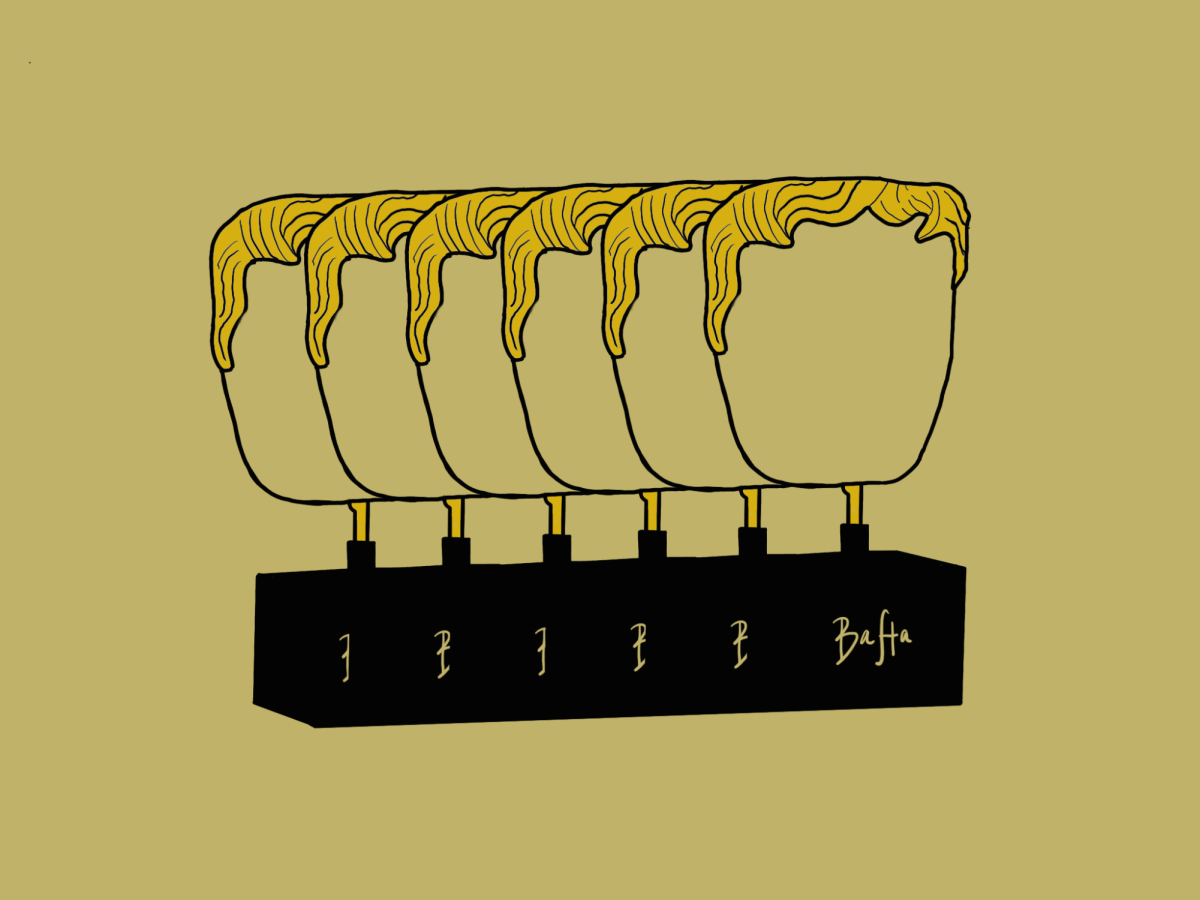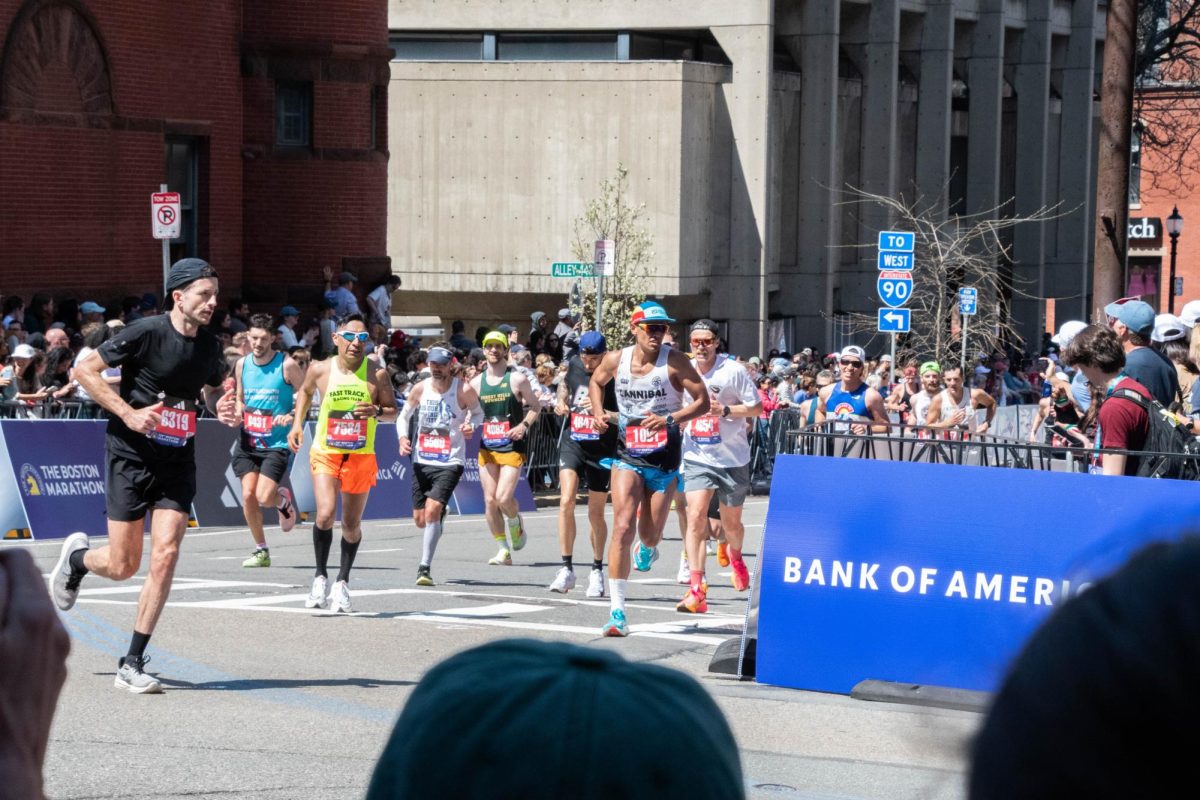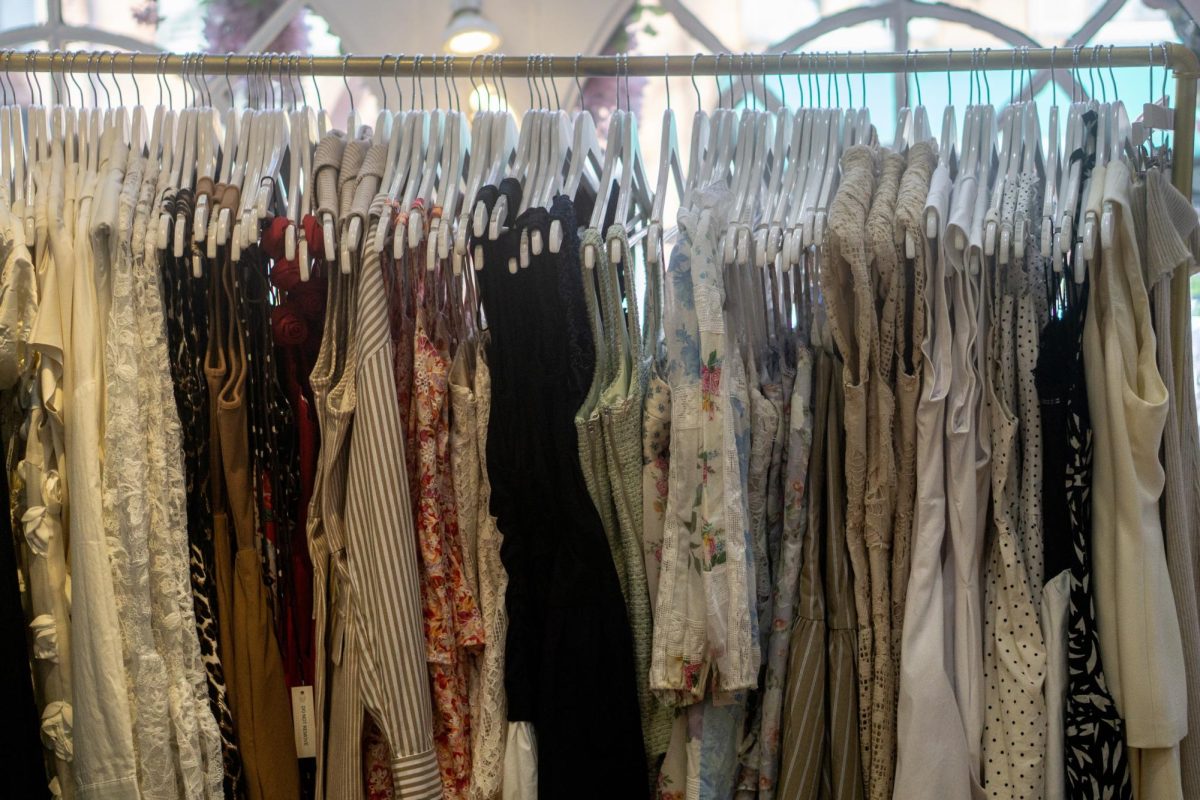The nominees for the 77th British Academy Film Awards, or BAFTAs, were unveiled Jan. 18, and the responses were far from positive. Notably, there was widespread criticism regarding major snubs, with several actors of color, including Greta Lee of “Past Lives” and Charles Melton of “May December” missing nominations. Lily Gladstone, who has been widely regarded as the presumed front-runner for Best Actress this awards season for her performance in “Killers of the Flower Moon,” was also overlooked despite a Golden Globe win and an undeniable presence within critics’ groups.
In 2020, the BAFTAs revamped its entire nomination process in response to significant public backlash over the lack of diversity among its nominees. Since then, its nomination process has consistently revealed significant flaws, particularly in the treatment of actors of color who, year after year, seem to be at a disadvantage.
The BAFTA voting process is composed of three rounds. In the initial round, members of the BAFTA acting branch cast their votes for the top 12 performances in each of the four acting categories. The three performances with the most mentions on the longlist automatically secure nominations. In the second round, an assigned jury for each acting category takes charge, selecting the final three nominees. This step is intended to increase diversity in nominations. BAFTA representatives have said that each jury is carefully composed, drawing individuals from diverse backgrounds to ensure an equitable and unbiased voting process. In the final round of voting, the entire body votes for the top performance of the six nominees.
Looking into this year’s nominations, the biggest shock of the morning was arguably Gladstone in the Best Actress category. Her snub came in favor of the following actresses: Fantasia Barrino in “The Color Purple,” Sandra Hüller in “Anatomy of a Fall,” Carey Mulligan in “Maestro,” Vivian Oparah in “Rye Lane,” Margot Robbie in “Barbie” and Emma Stone in “Poor Things.”
Among the six nominees, Gladstone’s omission is truly shocking given the stellar number of awards she has received this award season. Even if she didn’t secure a spot in the top three, her outstanding performance and background should have easily made her a shoo-in for a jury spot. Given the overall performances of “Poor Things” and “Anatomy of a Fall,” it is safe to assume Stone and Hüller were among the top three. “Barbie” and “Maestro” lived up to expectations in terms of nominations, leaving a safe assumption that either Robbie or Mulligan secured the third spot.
It was likely to be Robbie, considering her established presence within the BAFTA awards with two supporting actress nominations in 2020 for “Once Upon a Time in Hollywood” and “Bombshell” and an additional nomination in the category for “Mary Queen of Scots” in 2019. Additionally, she received a leading actress nomination in 2018 for “I, Tonya,” showing the voting bodies’ respect for her work. This, coupled with the fact that her performance and background don’t align with the typical taste of the jury, who favor more “conventional” roles, makes it easy to believe she was among the top three.
If indeed Barrino, Mulligan and Oparah were chosen as jury saves, it raises questions about the selection process. The preference for Mulligan, a high-profile white actress with virtually endless opportunities, above overlooked talents like Gladstone or Lee stands out significantly. Mulligan and Robbie will always find another opportunity waiting for them. Meanwhile, “Killers of the Flower Moon” marks Gladstone’s debut outside of indie films, and “Past Lives” is Lee’s first lead role, respectively — a chance that may not come around again, especially for actors of color.
If one found the Best Actress category to be lacking in taste, it is worth noting that the supporting actor line-up was entirely composed of white actors. A particularly glaring omission in this category was Melton, who delivered a devastating performance in “May December,” holding his own against Oscar-winning actresses Natalie Portman and Julianne Moore. The dominance of white individuals among the top three performances in this category raises the question of why, despite the supposed aim of “diversifying” the nominees, three jury picks also turned out to be white — certainly not due to a shortage of noteworthy contenders, considering the acclaim surrounding performances by Sterling K. Brown in “American Fiction” and Melton, among others. The 2020 nomination process revision seems to be a faulty fix for the much larger issue. Many individuals of color share the sentiment that nominations should be earned, not just selected by a small pool to meet a quota and that accomplishments should transcend numerical considerations.
The crux of the problem lies within the composition of the BAFTA voting body. As of May 2023, the membership reflects a 42% female to 58% male split, with only 16% representing underrepresented ethnic groups, 7% having a disability and 12% identifying as LGBTQ+. To ensure nominations that actors of color truly find deserving, a crucial step is to enhance the diversity within the body, as the current figures are disproportionately low and fail to mirror the contemporary world today. A more diverse membership would not only enhance the nomination prospects for actors of color but also make them more competitive in securing wins. A BAFTAs analysis revealed white men and women overwhelmingly dominate the acting categories. Particularly, no woman of color has ever won the BAFTA for Best Actress.
Unconscious bias plays a large role in the voting process, leading to a lack of recognition for the outstanding performances of people of color, even when they unquestionably deserve nominations or awards. At times, it feels as though people of color must work twice as hard to get half the recognition their white counterparts receive.
Consider Gladstone, a Native American woman who played a lead role in one of the most prominent films of the year, directed by none other than one of the all-time greats, Martin Scorsese. Despite unanimously being hailed for delivering the best performance in “Killers of the Flower Moon,” it’s baffling that she missed out on a nomination, especially when compared to her co-star Robert De Niro, who secured one in the Supporting Actor category. If an artist of her caliber struggles to receive due acknowledgment, what hope does that leave for everyone else?
It’s a poignant reminder that, in the pursuit of equitable recognition, dismantling unconscious biases is not just a noble aspiration, but an urgent necessity.
















